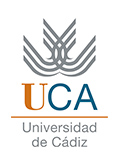Ongoing projects in the lab include:
Ecologia microbiana y biogeoquimica de los sedimentos intermareales: efectos del forzamiento fisico de las mareas, el fotoperiodo y los eventos climaticos extremos,
CTM2017-82274-R Ministerio De Economía, Industria Y Competitividad. PI: Prof. A. Corzo (199.650€). 01 Jan 2018 – 30 Sept 2021
Abstract:
Shallow coastal ecosystem, like the Bay of Cadiz, usually present large areas of intertidal sediments harbouring an active and complex microbial community, which is at the base of the trophic webs and strongly affects the whole ecosystem production and local biogeochemical cycles. These areas are largely subjected to strong physical forcing by key variables which change at different spatial and temporal scales, ranging from predictable diurnal and seasonal cycles, to more unpredictable changes due to random Extreme Climatic Events (ECE). Strong erosion and resuspension resulting from windstorms and flooding, or strong desiccation due to heat waves might affect considerably the biological community and the biogeochemical cycles. The main objectives of this proposal are:
- to study the effect of tides and their interactions with the photoperiod daily cycle on the microbial ecology and biogeochemistry at the sediment water interface in standard climatic conditions
- to evaluate how ECE (mainly wind) affect key biological and biogeochemical variables in the water column and the sediment with respect to the standard conditions and
- to evaluate the contribution of ECE to the annual primary production and net metabolism rates.
It will be addressed using different experimental approaches:
- microcosm studies in the laboratory where the interaction between tide and photoperiod will be simulated under controlled conditions,
- in situ study, where changes in several key ecological and biogeochemical variables will be monitored during 24 h daily cycles, thus including a combination of light/dark and immersion/emersion tidal periods,
- monitoring the water column and sediment before and after the occurrence of selected ECE until the recovery of the initial standard climatic condition, and
- generating a biogeochemical – hydrodynamic coupled model of primary production and net metabolism for standard climatic conditions and for specific ECE conditions.
The model will be validated with the experimental data from both conditions, to produce better annual estimates of microphytobenthic primary production and to evaluate the contribution of ECE, considering type, intensity and frequency, to annual rates.
Epidemic dynamics and the risk of Vibrio infection for Public Health. Determination of the distribution and virulence of vibrios in the province of Cadiz and its importance as an emerging human pathogen in the conditions of climate change.
ITI-0022-2019. Secretaría General de Investigación, Desarrollo e Innovación en Salud, Junta de Andalucía. 316.503,74€. IP: Manuel Rodríguez Iglesias. 01 Jan 2020 – 31 Dec 2022
Abstract:
Multidisciplinary project that seeks to understand the importance of Vibrio spp. in th context of change climate. In recent years global warming is affecting profoundly the temperature and other physicochemical parameters of surface waters and their ecosystems, generating changes in populations of zooplankton and Vibrio with which they have a well known symbiotic relationship. As a consequence, the role of Vibrio as an emerging human pathogen is expected to increase in importance in the next few years, if current environmental conditions persist. The project is based on the research of four fundamental aspects:
- perform metagenomic study of the bacterial population of the ecosystems and identify the Vibrio abundant in the coastal areas the Atlantic area of Cadiz (mouths of the Guadalquivir and Guadalete rivers)
- detect Vibrio in clinical samples received at the laboratory of the Microbiology Service of the H.U. Puerta del Mar in Cadiz, obtained from patients with community diarrheal processes through conventional and molecular coproculture;
- conduct a phenotypic, proteomic and molecular characterization of clinical strains isolated with study of their virulence factors, typing and antibiotic resistance profile and
- develop public health protocols to detect Vibrio in the human environment, not only in coastal waters but also in animals for human consumption such as bivalve molluscs and fish, with in order to avoid the health consequences of the presence of these bacteria for human health.
Previous projects can be found here



